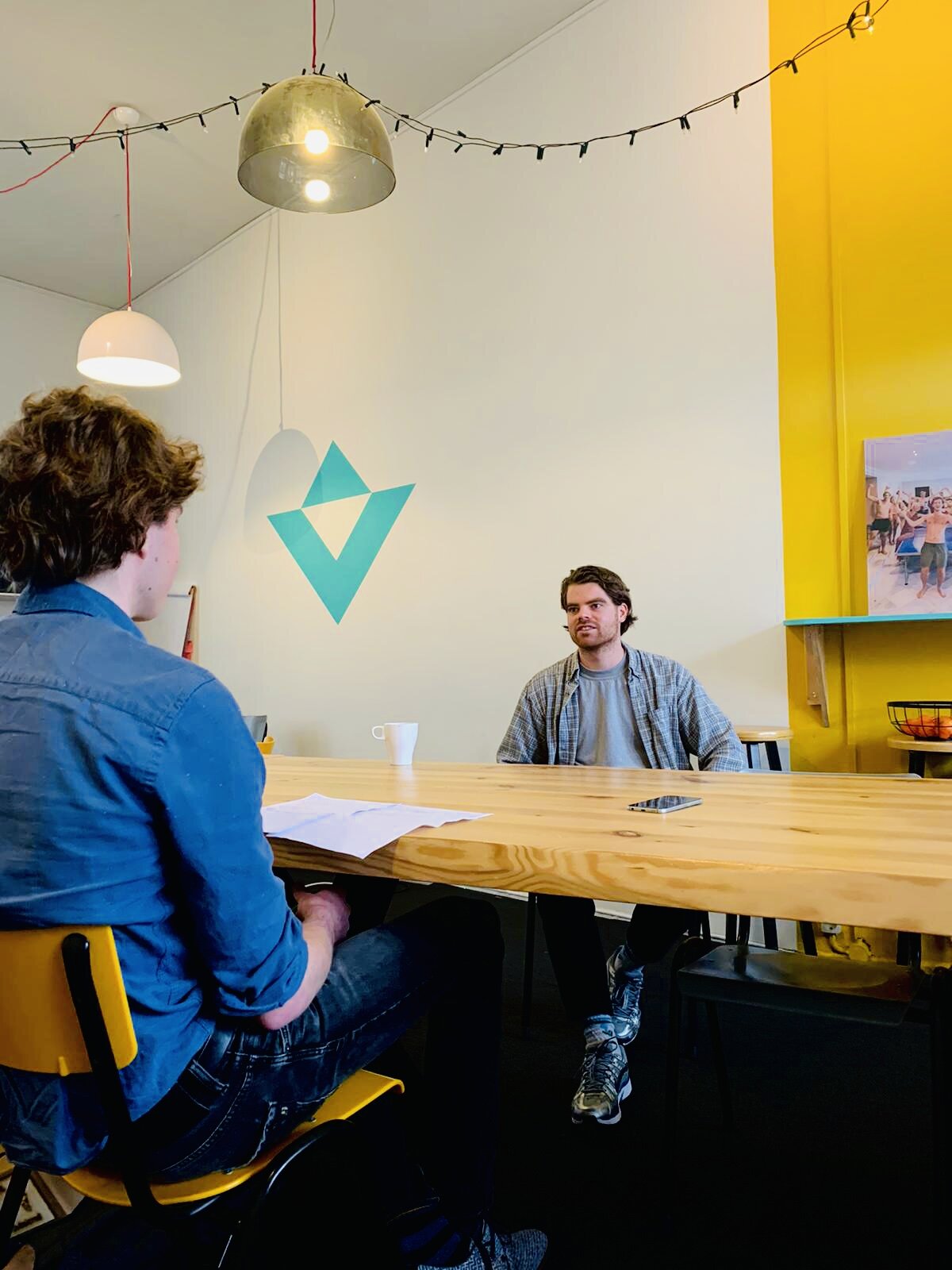From the 31st of May until the 2nd of June the very first edition of RISE NL came to life! Twelve students from eleven different student organisations all over the Netherlands (Academic Business Club Tilburg, TU/e Innovation Space, UtrechtInc Students, DSIF, Kickoff Eindhoven, Dutch Students for Entrepreneurship, Lugus Leiden, ECE, Founder Club Maastricht, Yes!Delft Students, Maastricht Entrepreneurs and StartHub Wageningen) organised a three days event in Delft while only seeing each other for the first time on the 31st of May. A short summary of what happened:
DAY 1 - THE GRAND KEYNOTE
The kickoff of RISE NL was a great success, thanks to our wonderful speakers and great hosts, Bruno, Denisa and our very own Hugo from the student board. Julian Jagtenberg (founder of Somnox) started the night with an introductory talk about student entrepreneurship and his company, whereafter Steven Nelemans (founder of Amber) inspired us with his journey and how he succeeded as a young entrepreneur. After the break, Denisa talked with the discussion panel about the hippie, hacker, hustler paradigm with entrepreneurs Nina Hoff, Priyanka Harish and our very own Frej Gustafsson (co-founder of Reshore).
DAY 2 - THE LION’S CAGE
This evening six startups pitched their ideas for four lions, Pleuni Hooijman, David Cerda Salzmann, Suradj Hilal and Martijn van den Hul. In the Ideation Round Reef Support and Farmvent and Ephora Solutions from StartHub’s community presented themselves. In the Market-Entry Round Respire, Apeiron Smart Systems and Myst Works pitched their startup. After the startups pitched their ideas the lions asked some questions and gave some feedback. The lions will come back to the startups if they think there is an investment opportunity. Also, thanks to Maartje Bakker for being a great host!
DAY 3 - THE BATTLE
Day three was the night of the battle! Eight startups representing eight cities across the Netherlands, Rotterdam, Leiden, Eindhoven, Delft, Utrecht, Maastricht, Wageningen and Enschede, battled against each other to be the best. After they pitched their startups, our insightful and experienced jury that consisted out of Sander Peltenburg, Jonathan Teoh and Robin van Scheijndel agreed on selecting Clairify and Moja for the finale. The audience choice was Laminara, a startup that is now participating in the Ideation program of StartHub.
In the finale Clairify, Moja and Laminara had to explain in 30 seconds why they deserved to win 500 euros, on the spot. Afterwards, the jury decided that Moja was the best startup! The audience award went to Laminara again. Congrats to both teams!
We are very proud to be part of this first RISE NL team, where Hugo of our student board was in charge of the first day and Wietske in charge of the marketing of RISE specifically, but are mostly proud of the way all these student entrepreneurship organisations managed to collaborate for the first time with such a successful event as result. This event was the first of many more to come in the future, make sure to follow the socials (LinkedIn, Facebook and Instagram: riseeventnl) for the latest updates. See you next year!
Want to watch The Grand Keynote and The Lion’s Cage? Check them out via the following links:
The Grand Keynote: https://youtu.be/_7hbICly6ko
The Lion’s Cage: https://youtu.be/e0eJcmNuALE













